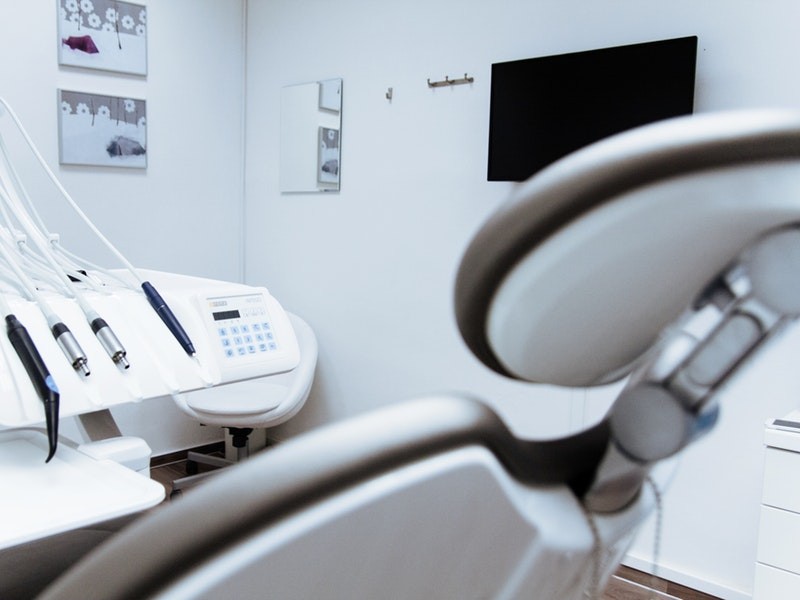by Jessica Smith , Guest Contributor
A 21st-century man, with his busy schedule, might not pay much attention to his dental needs, but taking care of one’s oral hygiene is of utmost importance. Tooth infection makes it difficult for a person to communicate verbally. Visiting a dentist, at least once a year, should be on everybody’s calendar.
What is Dental Anxiety?
Sometimes a person might not want to visit a dentist out of fear, stress, or anxiety that he gets in a dental clinic. Dental anxiety is a serious issue that can result in delayed dental treatment. There are certain things like drills and needles that work as a trigger. These triggers occur in a sudden irrational fear, which in extreme cases, can prevent a person from visiting a dentist.
What are the signs of Dental Anxiety?
Dental anxiety is like a phobia. A person suffering from dental anxiety might exhibit the following symptoms:
- sudden palpitation
- tachycardia
- sweating
- decreased blood pressure
- visible signs of panic
- withdrawal or sudden laughter to mask anxiety.
What are the possible causes of Dental Anxiety?
There can be many causes of dental anxiety. Some of the common causes are listed below-
- Trust issues
- Previous traumatic experience
- Generalized anxiety
- Fear of sudden loss of control
- Anxiety associated with agoraphobia or even claustrophobia
- Fear of sharp objects
How does Dental Anxiety affect your oral health?
If you already have dental disease, then it will only get worse if you avoid visiting a dentist. Dental anxiety can be very harmful to a patient. If a person needs sudden emergency attention or complex dental treatment, dental anxiety can prove to be fatal. Sometimes the thought of getting a dental surgery done can cause even more anxiety. This condition can lead to the formation of a “vicious cycle of dental anxiety”, which can be very hard to escape.
Getting regular dental checkups can be useful to prevent dental infections or diseases. If there is any persistent dental problem, it has to be treated in its initial stage. Most tooth-related issues are preventable by changing certain lifestyle habits. When a person avoids dental checkups, he unknowingly worsens a mild dental problem.
How to stay calm in a clinic?
There are many ways to deal with dental anxiety. These ways will not only help you to stay calm in the clinic but also help you to work on your stress points. These involve both physical as well as psychological techniques like:
- Share your fears. The best way to deal with fear is to confront it. So if you are feeling scared or tense, inside the clinic, talk to your dentist. You can directly share your problem with your dentist. The staff and the doctor can work to make you more comfortable and help you to stay calm.
- Keep the focus on your breathing. Sometimes our breathing becomes erratic when we are very scared or anxious. In such situations, we must focus on our breath. Try taking deep breaths in and exhaling them out slowly. This will send more oxygen into your system and help you to stay calm. Meditation helps to control your breathing pattern, which indirectly helps to fight dental anxiety.
- Listen to soothing music. Music is the food for the soul. So before visiting a dentist, listen to calm, soothing music. You can also carry an earphone and listen to your favorite music while the dentist is at work. This will cheer you up and help you relax. Sometimes music also has a hypnotic-effect. Listening to calming music can make you feel less anxious and distract you from the ongoing procedures.
- Use hand signals. You can also decide upon certain hand signals before starting a dental checkup. These signals will help your dentist understand your emotional condition when you feel anxious or scared. You can also use these gestures to warn your dentist or to stop him from continuing further with any procedure. You must decide your gestures before starting the procedure and tell your dentist about it too.
- Select an appropriate time. You must select the time of your dental appointment according to your convenience. This will make sure that you are calm and relaxed during the whole process. If you feel drowsy in the afternoon, then avoid keeping appointments during that time.
- Choose a good dentist. Finally, choosing a good dentist can make a huge difference. Before selecting a dentist, go through the available reviews. Check his profile online and evaluate the feedbacks of his previous patients.
- Monitored food-intake. You must self-monitor your food intake before visiting a dentist. Do not drink too much caffeine. Keep your diet simple and easy to digest. Make sure you never visit a dentist on an empty stomach. This can lead to weakness and nausea during the procedure.
- Discuss Sedation Dentistry with your doctor. If the procedure that you are about to undergo is complicated, make sure you discuss sedation dentistry with your dentist before you begin. Sedation can help make the whole procedure a comfortable or relaxed experience. The dentist will administer appropriate sedatives, either orally or intravenously. Some of these drugs have “amnesia” properties so that the patient will have little to no memory of the dental procedure, the next morning. It not only relieves the person but also makes the entire dental procedure very easy. There are many types of sedation, and your dentist would decide what’s best for you.





